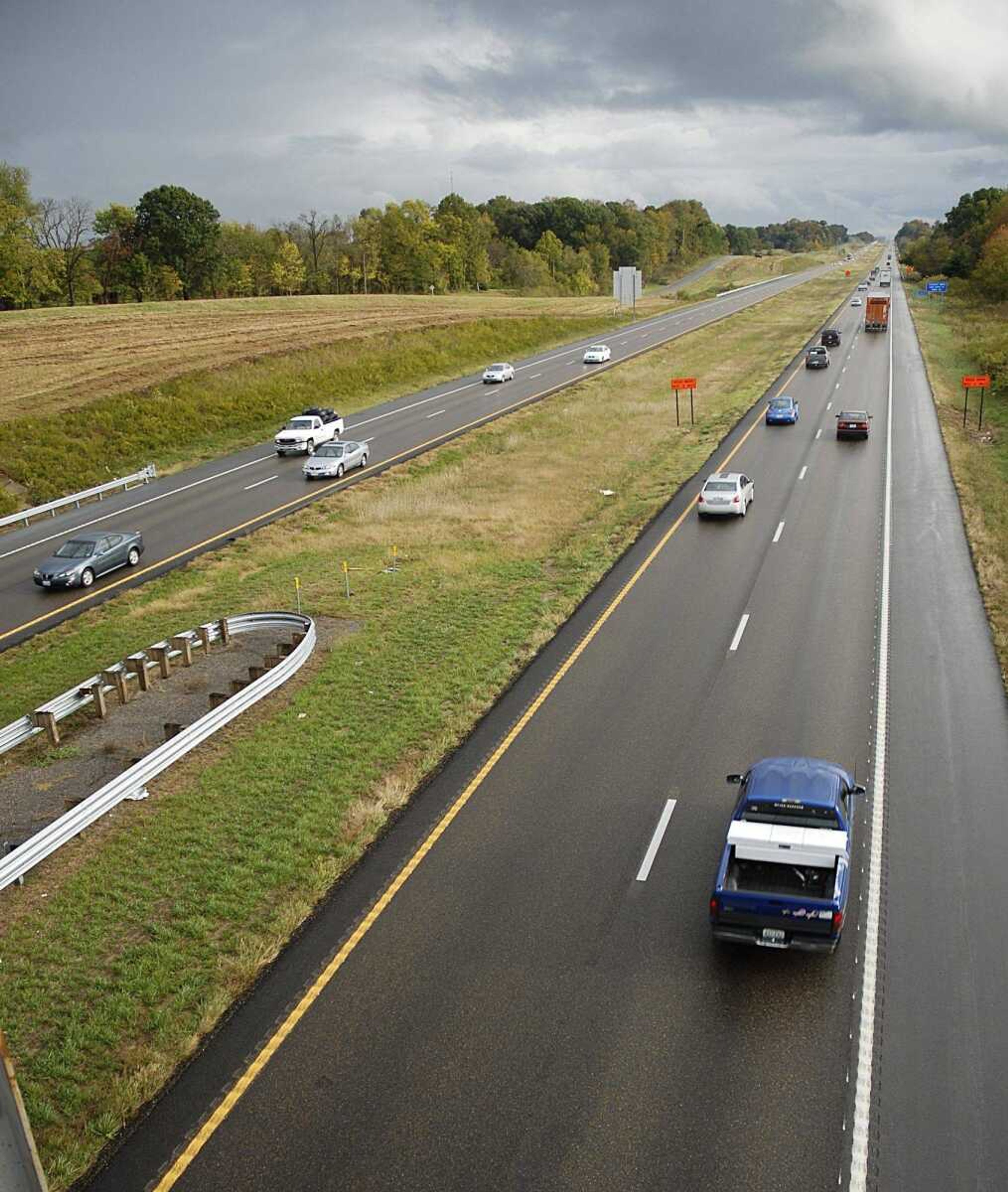Cape city leaders announce funding for I-66 feasibility study
The dream of an east-west highway that would connect Cape Girardeau to Paducah, Ky., is a step closer to becoming a reality now that funding is in place to study a route for Interstate 66 through Southern Illinois.
The dream of an east-west highway that would connect Cape Girardeau to Paducah, Ky., is a step closer to becoming a reality now that funding is in place to study a route for Interstate 66 through Southern Illinois.
Mayor Harry Rediger said during a news conference at the foot of the old Mississippi River bridge Thursday -- 20 years after I-66 was first proposed -- that he is confident it will now happen.
A total of $3.6 million was approved by the U.S. Department of Transportation to evaluate the most feasible route of I-66 between Paducah and I-55 in Missouri.
Obtaining funding for a route study is the most significant development in the I-66 effort to date, said Scott Meyer, Cape Girardeau city manager.
Interstate 66 is estimated to cut the time it takes to get from I-55 to I-24 in Paducah down to about 45 minutes. The trip from Cape Girardeau to Paducah currently can take more than an hour and a half.
Previously, Cape Girardeau and Sikeston, Mo., disagreed on where I-66 should intersect with I-55, but Sikeston's city council voted to support a route connecting at Cape Girardeau last year.
The project is part of the East-West Transamerica Corridor, a national transportation plan first studied in the 1980s that would start in San Diego and end in the Norfolk, Va., area. The 2,400-mile route would cross 11 states.
Since 1989, city and economic development officials have continued to push the project, specifically the Cape Girardeau-to-Paducah portion. It picked up steam once Sikeston and Cape Girardeau leaders came to an agreement. Paducah leaders also have continued to push for the project and worked in conjunction with Cape Girardeau.
In March, city officials went to Washington, D.C., to meet with Transportation Secretary Ray LaHood about the I-66 project.
It was then that city leaders learned grant funding through the Federal Highway Administration may be available, Rediger said.
A total of 1,800 applications were received for the funding in June; they requested $13 billion, 30 times the amount that was available.
The grant application for the I-66 study was completed by the Illinois Department of Transportation, and that organization will select the engineering firm to conduct the study. City officials did not know how long it would take for the study to get underway.
It's expected to take about two years to complete the study, which will look at the best route across Southern Illinois and potential environmental effects.
"It was a great cooperative effort between the state of Illinois and the states of Missouri and Kentucky," Rediger said. "This project is so vital to jobs and our economy in the future. So vital."
Rediger said the announcement Thursday was due in large part to those in the community who have been persistently dedicated to the Transamerica corridor from the beginning, including Walt Wildman and Earl Norman.
"This is the section that caused us to do the whole thing. The original concept was to get a highway from Paducah to Cape," said Wildman, who began lobbying for the project in 1989 while working for the Regional Commerce and Growth Association, which no longer exists. "We recognized to do that, you have to have something bigger. That's what created the East-West Transamerica Corridor. This is really a dream come true because this is what it was all about originally."
Norman was unable to attend Thursday but has long championed the need for manufacturers here to have a better east-west route to transport their products.
"There are a number of manufacturing plant -- P&G, Rubbermaid and Gilster-Mary Lee -- that rely heavily on trucking. As it is now, they have to go 100 miles out of their way," said Jeff Glenn, a consultant to the city on the I-66 project.
There is no further funding for I-66 past the initial route study, and there is a lot of uncertainty surrounding future federal highway funding. The last federal highway bill was approved by Congress in 2005 and expired in 2010. Since then, state departments of transportation have been operating under continuing resolutions.
Glenn said supporters of the Transamerica corridor will continue to pursue funding for the project.
"Certainly the highway bill is an opportunity for that," he said. "The reason it is, is that this is not a local project. It is a national project. It's not a congressional earmark. It's a national priority."
mmiller@semissourian.com
388-3646
Pertinent address:
Morgan Oak Street and Spanish Street, Cape Girardeau, MO
Connect with the Southeast Missourian Newsroom:
For corrections to this story or other insights for the editor, click here. To submit a letter to the editor, click here. To learn about the Southeast Missourian’s AI Policy, click here.










